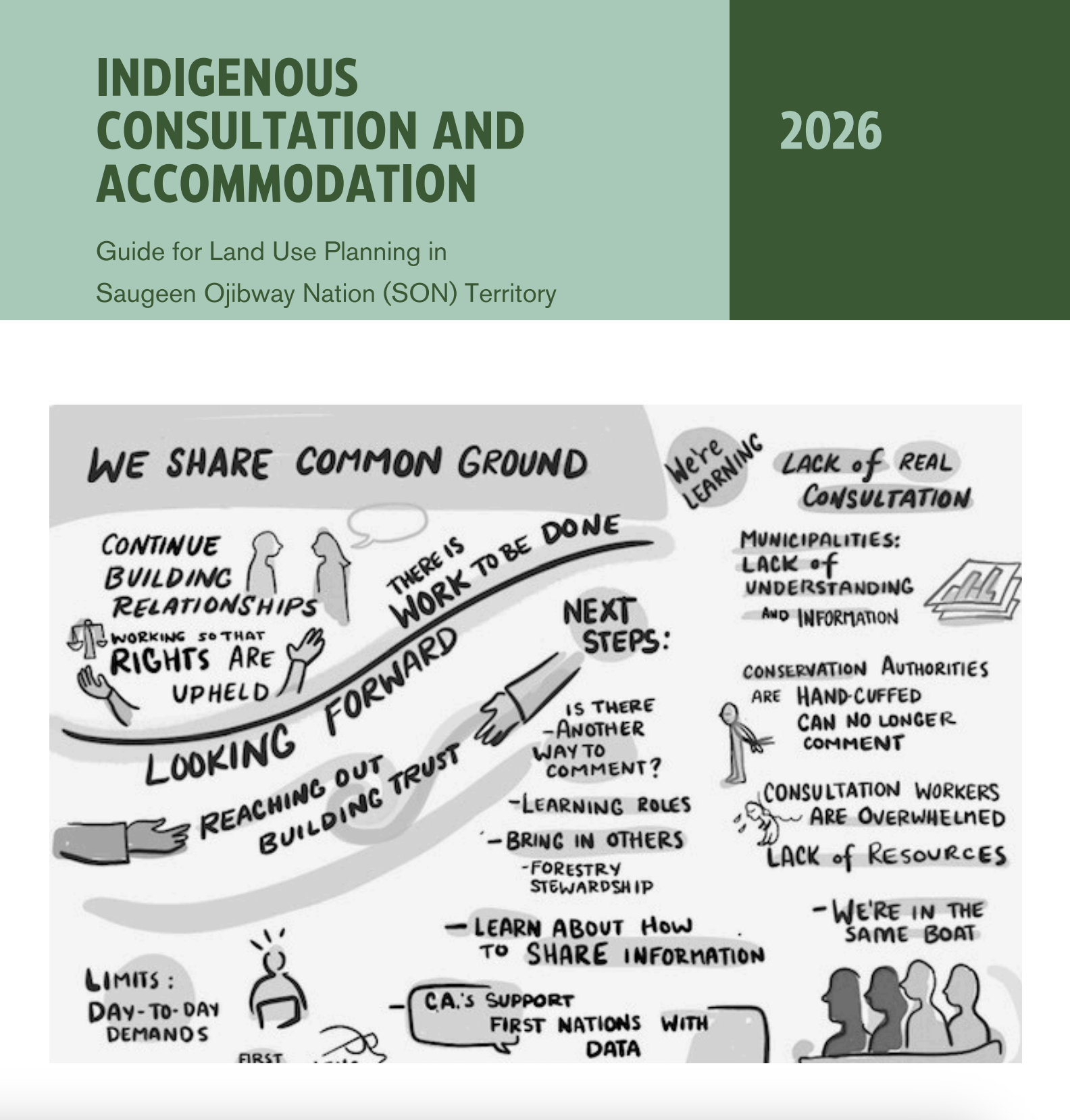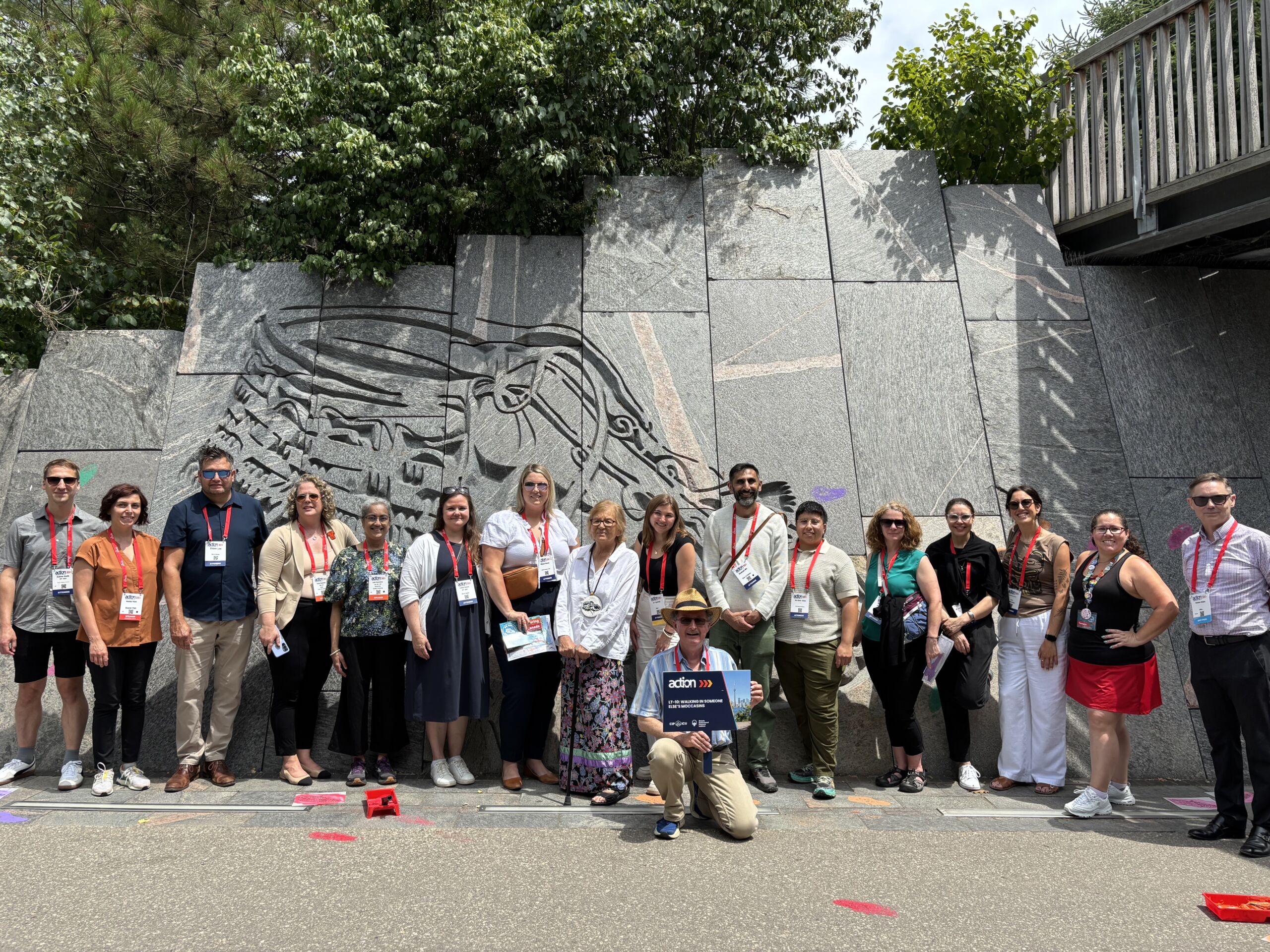Shared Path Questions Bill C-5: An Act to enact the Free Trade and Labour Mobility in Canada Act and the Building Canada Act
Written by Admin, Admin •
The Shared Path Consultation Initiative (Shared Path) shares the concerns raised by First Nations Chiefs during the First Nations Major Projects Summit between Carney and Indigenous leaders. The fast-tracking of mines, pipelines and infrastructure projects should not come at the expense of community health and wellbeing – and the quality of drinking water from local rivers and lakes.
Bill C-5, An Act to enact the Free Trade and Labour Mobility in Canada Act and the Building Canada Act was pushed through by the federal government in late June despite very limited consultation on the draft bill and opposition from Indigenous groups and environmental leaders. As a result, Bill C-5 marks a tremendous shift in federal policy. While the Building Canada Act (one of two pieces of legislation put forward in Bill C-5) stipulates that the Minister must consult with Indigenous Peoples and appropriate governments before recommending a project be included as a “national interest project”, there are no parameters outlining the process for consultation.
The following questions stand out:
- Without the duty to consult, by which mechanism will the Crown act honourably to preserve and protect Indigenous groups’ constitutionally protected Aboriginal and treaty rights?
- How can meaningful consultation take place without a detailed project description and the information necessary to understand potential impacts?
- How can First Nations honour their Ancestors and uphold their responsibilities to all of Creation if vital information is denied?
The Duty to Consult and Accommodate, under Section 35 of the Canadian Constitution, is law in Canada. Bill C5 continues to pursue an adversarial approach to its constitutional responsibilities, which is not in the spirit of reconciliation. Constitutional responsibilities to First Nations will always take precedence over any particular law or regulation. Canada will always need to consult and accommodate, and to respect the spirit and intent of the Treaties.
If Aboriginal and treaty rights are at risk of being adversely affected by government decisions, including during project approval processes, consultation is required. However, if the decision to designate a project as a “national interest project” is made early in the regulatory process, this could limit the assessment of potential impacts and understanding of those impacts held by the Minister, any impacted Indigenous groups, and even the proponent.
We are concerned, alongside legal experts, that the Act could significantly impair the duty to consult, fail to properly account for Indigenous understanding, Indigenous rights, and the environment – this may slow down rather than speed up development timelines – through legal challenges, direct action, and environmental mishaps. Throughout decades of asserting First Nations rights in Canada, many examples of crises come to mind within and around Ontario’s borders: the Oka Crisis, Ipperwash Crisis, Caledonia Land Dispute, Anicinabe Park Occupation, and mercury contamination in Grassy Narrows.
During the July Summit, Chief Angela Levasseur of the Nisichawayasihk Cree Nation asked, “Whenever First Nations decide to reject a project of national interest based on their own decisions for their survival, will the Prime Minister commit to ensuring the state will not use the army or police force against any First Nations across the country?”
Due process is needed by which First Nations can make deliberative and informed decisions that protect, restore, and fulfill their vision for the traditional territories, stemming from a deep reverence for sacred sites and ancestral burial places, the land, waters, way of life, and the well-being of all living relations.
Similar bills were pushed through at the provincial level. Shared Path issued submissions in response to the Ontario government’s introduction of Bill 5, the Protect Ontario by Unleashing Our Economy Act. We re-affirm that treaty relationships as stated in Section 35 of the Constitution are not adversarial to economic development. Common ground and common interests including First Nations prosperity in Ontario, is possible. For the economy to thrive, First Nations rights and interests, including environmental stewardship need to be taken into consideration.
In order to strengthen, protect, and grow Canada’s economy, a process is needed to ensure First Nations rights and interests are not put at risk. The 2017 Saugeen First Nation v Ontario Court ruling found that First Nations have a right to be consulted and accommodated, there needs to be a clear and coherent process, with capacity and funding for the First Nations to participate in consultation including legal costs and peer reviews funded by the Crown &/or proponent. It is reasonable for a First Nation to take the position that it should not have to pay for the Crown to fulfil its constitutional obligations. This precedent sets out that the economic benefit for a project does not override inherent and constitutional protected rights – which draw upon a relationship to healthy land and waters.
Shared Path is a charitable not-for-profit organization which works towards a future in which Indigenous voices, obligations, and rights form a sustained and integral part of Ontario’s planning system. Shared Path addresses the challenges and opportunities that emerge where land use change and First Nations and Treaty Rights intersect, and facilitates relationship-building opportunities for First Nations and local governments, institutions, and organizations.
For the reasons mentioned, and in light of unprecedented challenges, we strongly urge the Prime Minister and Cabinet to consider upholding Canada’s sovereignty wisely – economic pressures cannot override legal duties to Indigenous Peoples and the public interest. Our sovereignty does not come from markets or fast-tracked infrastructure. It comes from the land and from the sacred responsibilities that First Nations have upheld since time immemorial. To uphold the original laws of these lands and waters is part of what it means to honour the Treaties. Being in right relation is the only way to maintain the independence, responsibilities, and shared future of all who call this place home. Our duties to future generations come from the land. What makes us Canadians – our culture – comes from the land and the health of the lakes and forests we call home. Evidence-based decision-making and oversight is what reduces the risks to severe environmental harms to all of the communities in Canada.
Where do we go in a time of crisis—what security do we have if the rivers are polluted, the fish can no longer feed us, and the soils cannot yield food? Canada must choose a different path. We need a regenerative economy—one that accounts for the restoration of lands and waters – an economy that honours responsibilities rather than overriding them.
As we nation build, laws and policies must reflect a fundamental shift: to live in right relationship with nature, with each other, and with the spirit of the Treaties. After all, whose interest is being served?
Earlier we posed three questions, to answer “how,” we must answer together—through dynamic, transparent, and consultative processes grounded in mutual respect and shared care for the land.
___
Background
The Union of B.C. Indian Chiefs (UBCIC) echoes the urgent calls made at the July Summit:
- For Canada to revisit and amend Bill C-5 to ensure that rights holders, not advisory bodies or federal departments, are the ones engaged from the outset;
- For the government to abandon its centralized, streamlined permitting regime that risks sidelining Indigenous laws and environmental safeguards;
- For a co-developed Section 35 Rights Framework that defines the Crown’s obligations and gives legal weight to consent, not just consultation.
Leading environmental and civil society groups in Canada are reacting to the “dangerous precedent” by calling on the government to:
- Work with Indigenous leaders, the public and civil society organizations to define “national interest” for the purposes of Bill C-5, and criteria that projects must meet in order to qualify;
- Engage the public in meaningful dialogue, and ensure the consent of Indigenous peoples and the provinces, before designating projects as “national interest projects”;
- Work with environmental experts and communities to identify ways to meaningfully engage the public in the reviews of national interest projects;
- Commit to not using any of the “Henry VIII” powers to exempt national interest projects from environmental, health, or other important federal laws;
- Establish a public registry of all information related to national interest projects; and
- Commit to prioritizing renewable energy, and to not include any fossil fuel projects among the list of designated “national interest projects.
9 Ontario First Nations ask for injunction against Bill 5, say law represents ‘clear and present danger’
- Not a question of development but “doing it right” by ensuring necessary information is gathered before proceeding “so the real costs … do not end up far exceeding their asserted benefit.”
- The First Nations argue the laws are unconstitutional because they violate charter right to life, liberty and security of the person, as well as equality rights
The AFN held a National Virtual Forum on Bill C-5
- Legal analysis highlighted how Bill C-5 conflicts with the legal standard of free, prior, and informed consent.
- Presentations from the technical panel can be found here: https://afn.ca/events/afn-national-virtual-forum-on-the-building-canada-act/.
- Throughout the dialogue, participants emphasized that First Nations are not opposed to development or partnerships on major projects but expect to be full partners in decisions and legislation that affect their lands, waters, and Treaty rights, both now and for future generations.




